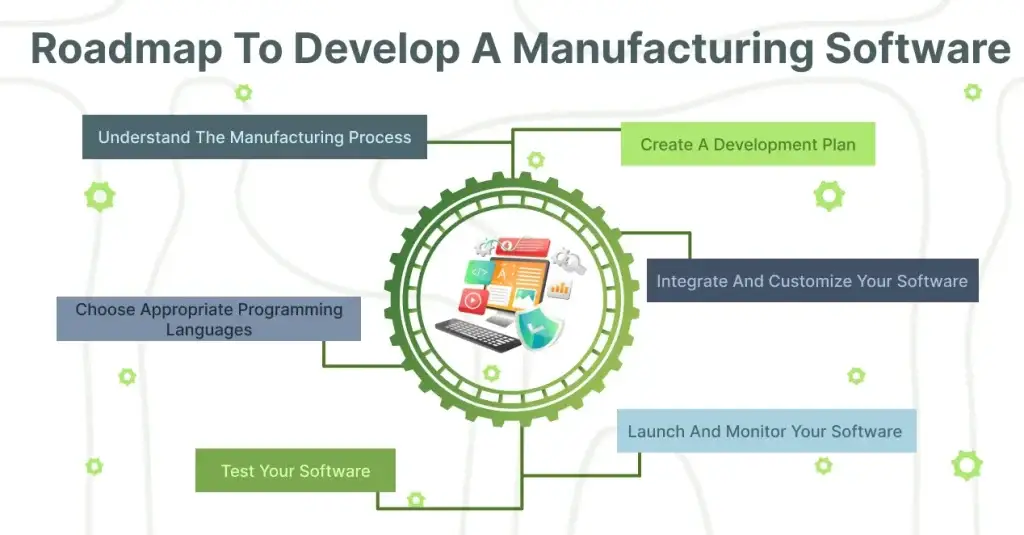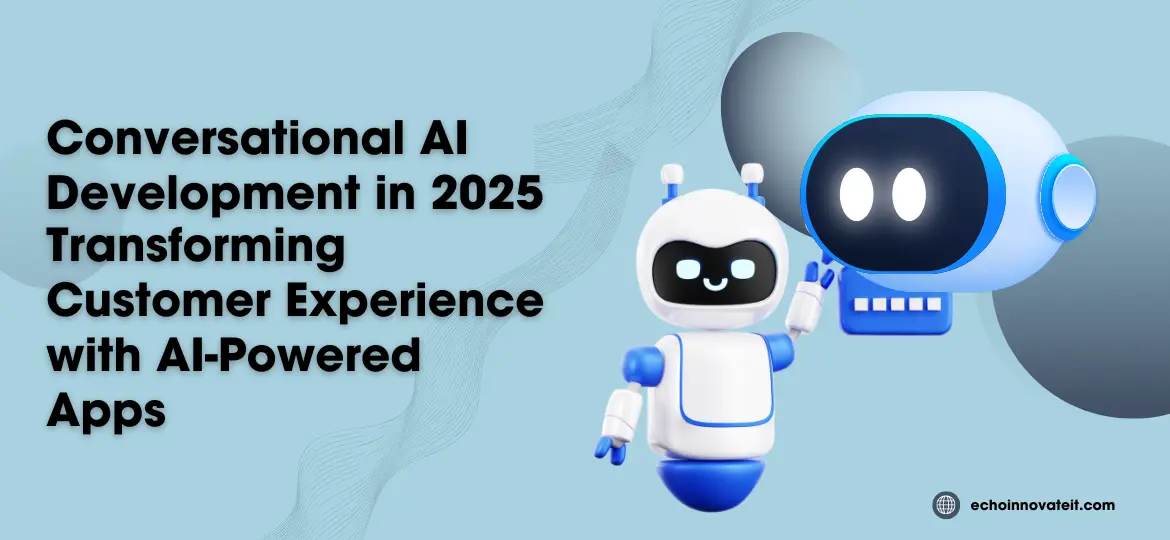The global software development market is growing rapidly, impacting almost all business sectors. It is not limited to e-commerce, AI, cloud computing, or supply chains. It has expanded its influence on new trends like sustainability, personalization, and the manufacturing sector. Now, you must be wondering how software for manufacturing works. Well, your first thought must be that it simplifies the production process.
Well, it does.
When talking about manufacturing, it is creating or recreating new products using human labor. Imagine a car manufacturing company that relies heavily on manual labor for tasks like welding, assembling parts, painting, and maintenance. They are subject to human errors, limited flexibility, labor costs, quality issues, and, most importantly, production delays. Let’s explore another scenario where a car manufacturing company has opted for digital solutions. It streamlines the production process with robotics, AI, and automation for manual tasks like assembly and welding.
With just a simple manufacturing software reprogramming, it can adapt to new product designs and requirements. Although the initial investment cost of smart manufacturing can be high, long-term operational costs can be decreased through higher efficiency and lower labor expenses. This was just a simple example of manufacturing software development. If you want to know more about it and how manufacturing software solutions can be designed, read this blog until the end!
Understanding Manufacturing Software Development
Manufacturing software development is a process that helps manufacturing companies plan, produce, and deliver their products through a set of digital technologies. These technologies automate and streamline fundamental operations, allowing manufacturers to improve operational efficiency across many tasks, acquire greater control over proprietary information, and improve the speed of manufacturing and capacity.
Developers can use different programming languages like Python, C++, or Java. The software can fit various roles like tracking inventory, managing production schedules, and creating digital tools to optimize the process. Once the design is implemented, they create functions and complex algorithms for each component. The entire development process is completed by testing each component and fixing errors while running simulations.
The final deployment of manufacturing software systems is integrated with the existing ones through hardware or software interfaces. As a result, by automating this process, software can increase efficiency, eliminate errors, and boost total assembly line productivity.
Did you know that the smart manufacturing market is expected to increase from USD 123.78 billion in 2024 to USD 358.85 billion by 2032, with a CAGR of 14.2% over the forecast period? This means those who adopt smart manufacturing technology early benefit more, invent new products for their customers, get accuracy in data, and can provide customized services.
Necessary Features In Your Manufacturing Software
The features of any manufacturing software depend on the industry’s needs and the software provider. However, there are some common features that every manufacturing software must have. Let’s discuss them in detail:
Inventory Management
Inventory management is one of the most crucial processes for manufacturers. It helps them ensure a better flow of goods, from the initial acquisition of raw materials to the sale of finished products. Smart inventory management improves stock levels, lowers carrying costs, and eliminates stockouts. The software can track the inventory, automate reorder points, check serial numbers, and integrate barcode and RFID.
Production Planning
This feature lets producers plan and organize manufacturing processes, resulting in the best resource usage. It includes designing production schedules, allocating work, and tracking progress to satisfy production goals and deadlines.
Quality Control
Manufacturers constantly need to monitor and control the quality of their products or services for the entire production process. This function in manufacturing software involves setting quality standards, conducting inspections, and recording faults to identify and resolve quality concerns quickly.
Maintenance Management
With this feature, manufacturers can easily schedule and track maintenance for their machinery. It ensures maintenance work orders and task management with downtime tracking and analysis. It promises peak equipment performance, minimizes downtime, and extends asset life.
Data Analytics
It enables manufacturers to collect, analyze, and interpret data from multiple sources for useful insights. Data analytics may assist with identifying trends, optimizing processes, and making data-driven decisions to increase efficiency and profitability. It can be done through production performance metrics, cost and profit analysis, customizable reports, and higher accuracy through business intelligence.
Integration Capabilities
Software providers use ERP integration for a seamless flow of data. It also involves integrating other business systems like CRM, medical, finance, etc. API and data exchange powers and smooth connectivity with machines. This integration helps simplify operations, eliminate human data entry, and increase overall productivity at the company.
Different Types of Manufacturing Software
Manufacturing development software includes diverse programs aimed to streamline and automate many areas of the production process. From product design to manufacturing, quality control, and inventory management, software programs cover every stage of the manufacturing process.
Each form of manufacturing software has unique qualities and functionalities that make it better suitable for some businesses and sectors than others. Some of them are mentioned for your reference:
Quality Management System (QMS) Software
Supply Chain Management (SCM) Software
Enterprise Resource Planning (ERP) Software
Manufacturing Execution System (MES) Software
Inventory Management Software
Document Management System (DMS) Software
Materials Requirement Planning (MRP) Software
Computer-Aided Design (CAD) Software
Computer-Aided Manufacturing (CAM) Software
IoT Software For Manufacturing
Steps To Developing A Manufacturing Software Development

Since we have provided abundant knowledge about manufacturing software, its features, types, and future demand, it’s to learn how to make things real for your manufacturing business. Check out this simple process to learn how to get started with manufacturing software development:
Understand The Manufacturing Process
As mentioned above, every business has different manufacturing needs and an entire development plan. To simplify things, you can evaluate your needs, like production flow, team requirements, and the type of software that best fits your business. Understanding the process allows developers to design the software to meet the particular needs of the manufacturing operation.
Create A Development Plan
A well-structured development plan follows the next step. This plan should include the project, timetable, and resource allocation. It should also fully describe the software’s features and capabilities. A well-defined development strategy keeps the project on track and delivers the required results.
Choose Appropriate Programming Languages
You can choose from popular programming languages like JavaScript, Python, or C++ to build efficient manufacturing software. The complexity of the project, performance requirements, and development expertise all influence your language choice.
Integrate And Customize Your Software
Integration comes next. You can integrate your software with CRM, ERP, or PLM for smooth workflow. Customizing the software to meet the specific requirements of the industrial operation is also critical. This could include customizing the user interface, adding certain functionality, or integrating with specialized hardware.
Test Your Software
The next step involves testing your software to check if it’s stable, functional with different components, and of good working quality. This includes unit, integration, and user acceptance testing. Developers can reduce the risk of software failures and manufacturing disruptions by finding and fixing defects early.
Launch And Monitor Your Software
It’s time for deployment. Once the software is tested thoroughly, you can make the final launch for all your manufacturing needs. Throughout its lifespan, your software may need to be updated or modified to meet changing company needs or technical improvements.
Create A Manufacturing Software With Echoinnovate IT
Your manufacturing business can simply get wings by integrating with smarter digital solutions. Who would have thought automation, quality control, faster production, and supply chain would become that easy? You can win the market with high-performing manufacturing software and get the best real-time performance and results. But to achieve this advanced industrial revolution, you must take the first step towards a reputed manufacturing software development company.
Partner with us and get a team of talented software developers, innovators, and builders to create custom manufacturing software on a budget. Hire us and skyrocket your manufacturing business with EchoInnovate IT!
FAQs- An Entrepreneur’s Guide to Manufacturing Software Development
What is manufacturing software development?
Manufacturing software development involves creating customized digital solutions to streamline production processes, manage supply chains, monitor inventory, and improve efficiency in manufacturing operations. These solutions help manufacturers automate tasks, reduce errors, and boost overall productivity.
Why should entrepreneurs invest in manufacturing software?
Entrepreneurs should invest in manufacturing software to enhance operational efficiency, reduce costs, improve decision-making with data insights, and scale their businesses faster. Custom software can be tailored to the unique needs of a manufacturing business, providing a competitive edge.
How do I choose the right software development partner for my manufacturing business?
Look for a software development partner with experience in the manufacturing sector, a strong track record of building scalable and secure solutions, and expertise in technologies like IoT, ERP systems, and AI. A good partner should also understand your business goals and help design solutions tailored to your specific needs.



